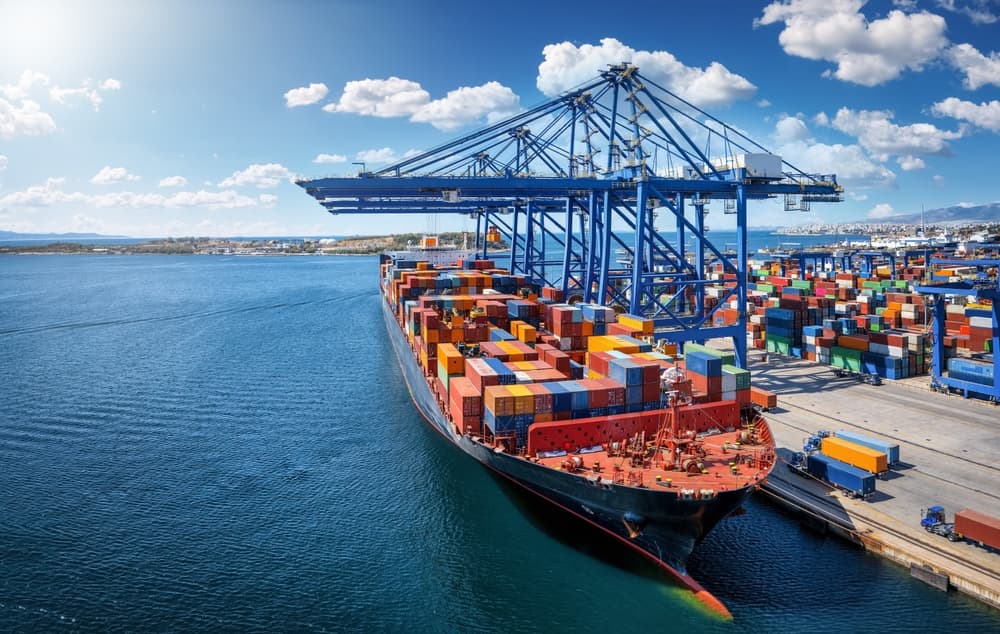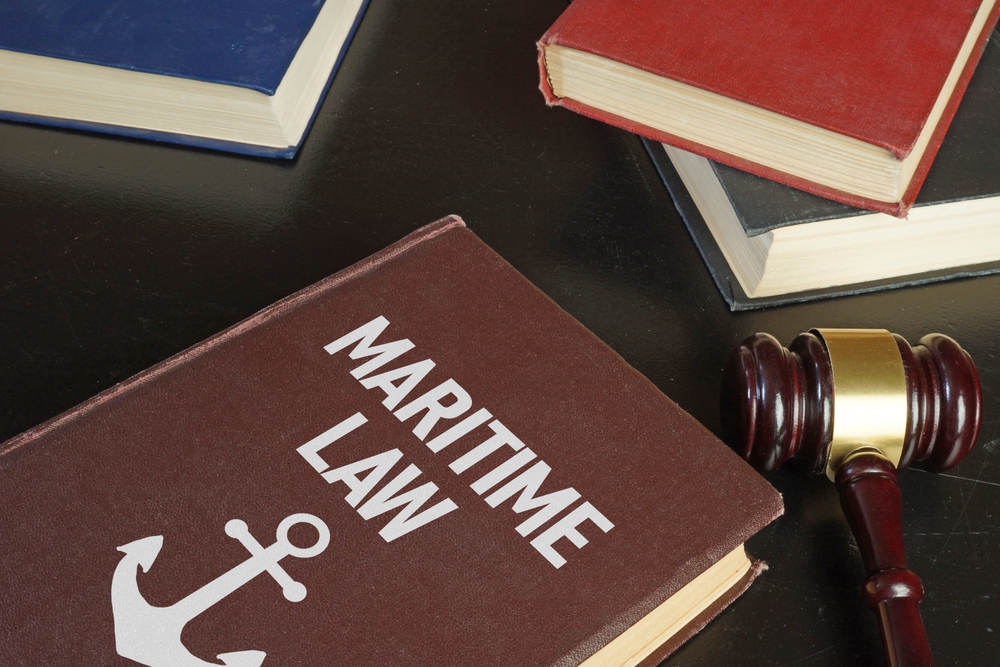Last Updated on December 3, 2024 by The Young Firm
The United Arab Emirates (UAE) has long been a hub for international maritime trade, thanks to its strategic location and progressive maritime policies. As the global maritime industry evolves, so does the UAE’s legal system.
The latest development in this regard is the introduction of Federal Decree-Law No 43 of 2023, which marks a significant shift in regulating vessel registration and maritime commerce within the UAE. This new law aims to modernize the UAE’s maritime sector and provides clearer guidelines for issues such as the statute of limitations for maritime injury claims.
The following is a look at some of the new law’s key provisions, its implications for injured maritime workers, and the importance of having a maritime injury lawyer in dealing with the complexities of this evolving legal landscape.
What UAE Federal Decree-Law No 43 of 2023 Means for the Maritime Industry
The maritime industry is a critical pillar of the United Arab Emirates (UAE) economy, with its ports serving as vital gateways for global trade. The UAE has consistently sought to maintain its position as a leading maritime hub by updating and refining its laws to reflect the industry’s evolving needs.
The introduction of Federal Decree-Law No 43 of 2023 marks a significant milestone in the UAE’s ongoing efforts to modernize and enhance its maritime sector. This law has far-reaching implications for vessel registration, maritime commerce, dispute resolution, and the protection of maritime workers, positioning the UAE to continue its growth as a global maritime leader.
Modernizing Vessel Registration

One of the most notable aspects of Federal Decree-Law No 43 of 2023 is overhauling the vessel registration process. Historically, vessel registration in the UAE can be cumbersome, involving extensive paperwork and multiple regulatory bodies. The new law aims to streamline this process by introducing digital platforms for vessel registration, making it more accessible and efficient for both local and international stakeholders.
The shift to digital registration is a significant improvement, as it reduces bureaucratic delays and simplifies registering all types of vessels, including commercial ships, pleasure boats, and offshore support vessels. By modernizing vessel registration, the UAE is making it easier for maritime businesses to operate within its waters and enhancing regulatory oversight. A comprehensive and up-to-date registry will improve maritime safety and enable authorities to respond more effectively to incidents and emergencies.
In addition, the new registration system is designed to align with international standards, making the UAE a more attractive destination for global maritime operators. This alignment is important for the UAE’s aspirations to strengthen its position as a global maritime hub, ensuring its regulations are consistent with those of other major maritime nations.
Enhancing Maritime Commerce Regulations
Federal Decree-Law No 43 of 2023 also introduces new regulations to improve maritime commerce’s safety, security, and sustainability within the UAE. These regulations cover a broad range of activities, from transporting goods to handling hazardous materials, protecting both the environment and the economic interests of the UAE.
One key goal of the new law is to encourage the adoption of sustainable practices within the maritime sector. The law promotes eco-friendly technologies and fuels, reflecting the UAE’s broader commitment to environmental sustainability. By setting higher standards for environmental protection, the UAE is positioning itself as a leader in sustainable maritime practices, which is increasingly important in a global context where environmental concerns are becoming more prominent.
The law also seeks to enhance the safety of maritime operations by introducing stricter regulations on transporting goods, particularly hazardous materials. These regulations are intended to reduce the risk of accidents and environmental damage, ensuring that maritime commerce in the UAE is safe and responsible. For businesses operating within the UAE, this means adhering to higher safety standards and potentially investing in new technologies and processes to meet these requirements.
Strengthening Dispute Resolution Mechanisms
As the UAE continues establishing itself as a hub for international arbitration, Federal Decree-Law No 43 of 2023 includes provisions that strengthen provisions for settling maritime disputes. The new law sets out clear arbitration and dispute resolution guidelines covering various issues, including contractual disputes, cargo claims, and personal injury claims.
This focus on dispute resolution is particularly important for the maritime industry, where conflicts can arise over complex issues involving multiple parties from different jurisdictions. By increasing the transparency of dispute settlement methods, the UAE is enhancing its appeal as a destination for maritime businesses and investors who value stability and predictability in legal matters.
Implications for Maritime Workers
While much of Federal Decree-Law No 43 of 2023 focuses on the business and operational aspects of the maritime industry, it also has significant implications for the protection of maritime workers. The new law includes provisions that address the rights and responsibilities of maritime workers, particularly in the context of injury claims.
One of the key changes introduced by the law is the clarification and extension of the statute of limitations for maritime injury claims. This is a critical development for seafarers and other maritime workers who may be injured while working on vessels or in other maritime environments. By extending the timeframe within which victims can file injury claims, the law provides greater protection for workers, ensuring they have adequate time to seek legal recourse.
Extending the statute of limitations reflects an understanding of the unique challenges maritime workers face, who may spend extended periods at sea and not have immediate access to legal resources. This change underscores the UAE’s commitment to protecting maritime workers’ rights and ensuring they have the support they need in the event of an injury.
Maritime Law and the Rights of Injured Workers

Maritime law, also known as admiralty law, governs activities on navigable waters. It encompasses a wide range of issues, including shipping, navigation, marine commerce, and the rights and responsibilities of maritime workers. One of the most important aspects of maritime law is its provision of rights and protections for injured workers.
As a maritime worker, you’re often exposed to dangerous working conditions at sea, in a port, or on an offshore platform. The risks associated with maritime work are well-documented, and injuries can range from minor incidents to life-altering accidents.
Fortunately, maritime law provides a range of legal remedies to protect you if you suffer an injury while working in the maritime industry. The following is a brief look at some of those remedies and the laws that make them possible.
The Jones Act and Seaman’s Rights
One of the cornerstone statutes of maritime law, particularly in the United States, is the Jones Act. While the Jones Act is specific to the US, its principles indicate the types of protections that maritime law provides to seamen globally.
Under the Jones Act, seamen injured due to their employer’s negligence can file a lawsuit to seek compensation. This law protects you if you work on a vessel, ensuring your employer provides a safe working environment.
The Jones Act allows you to seek compensation for medical expenses, lost income, and pain and suffering. If you suffer an injury due to unsafe working conditions, defective equipment, or the negligence of a coworker, you have the right to pursue a claim under this law. This powerful tool can help you secure the financial support you need to recover from your injuries and rebuild your life.
Maintenance and Cure
Another important concept in maritime law is maintenance and cure. This doctrine requires your employer to provide medical care (cure) and a daily living allowance (maintenance) if you suffer an injury while working as a seaman. This is a no-fault remedy, meaning you’re entitled to these benefits regardless of who was at fault for your injury.
Maintenance and cure is a vital protection for injured seamen, ensuring that you have access to the medical care and financial support you need while you recover. This doctrine reflects the unique challenges of maritime work, where access to medical facilities and traditional workers’ compensation benefits may be limited. If your employer fails to provide maintenance and cure, your maritime injury lawyer can hold them liable for additional damages, including punitive damages in some cases.
Longshore and Harbor Workers’ Compensation Act (LHWCA)
The Jones Act only pertains to seamen. Many maritime workers don’t fall into the category. For them, the Longshore and Harbor Workers’ Compensation Act (LHWCA) provides another layer of protection. This US federal law offers workers’ compensation benefits to longshoremen, harbor workers, and other maritime employees injured on the job but not covered by the Jones Act.
The LHWCA provides benefits such as medical treatment, income replacement, and compensation for permanent disabilities. Like traditional workers’ compensation laws, the LHWCA operates on a no-fault basis, meaning you’re entitled to benefits regardless of who was responsible for your injury. This law is particularly important for those working in ports, shipyards, or other maritime facilities, ensuring you have access to the financial support you need while recovering from your injuries.
The Evolving Nature of Maritime Law
Maritime law is not static; it is a dynamic and constantly evolving field that adapts to changes in the maritime industry, technological advancements, and shifts in international legal standards. The introduction of Federal Decree-Law No 43 of 2023 is a clear example of how maritime law continues to evolve in response to the needs of the industry and its workers.
As a maritime worker, it’s essential to understand that the legal landscape is always changing. New laws and regulations can significantly impact your rights and responsibilities, particularly when filing injury claims. For instance, the recent changes to the statute of limitations under Federal Decree-Law No 43 of 2023 demonstrate the importance of having a maritime injury attorney who stays informed about legal developments that can affect your ability to seek compensation.
The Importance of Legal Representation

Given the complexities of maritime law and the constantly changing legal environment, it’s crucial to seek legal representation from a maritime injury lawyer with experience in this area of law. Maritime injury claims can be particularly challenging, as they often involve multiple legal jurisdictions, complex factual scenarios, and specialized legal doctrines.
An experienced maritime injury lawyer can help you understand your rights, assess the merits of your claim, and navigate the legal process. This includes determining the appropriate statute of limitations for filing your claim, identifying the responsible parties, and pursuing the maximum compensation available under the law. In addition, a maritime injury lawyer can provide valuable guidance on the intricacies of maintenance and cure, the Jones Act, and other relevant legal provisions.
Your attorney must also be experienced enough to recognize that maritime law is not uniform across all jurisdictions. Different countries have different legal frameworks for addressing maritime injuries, and the applicable laws can vary depending on the incident’s location, the parties’ nationality, and the type of vessel. It’s essential to work with an attorney with a deep understanding of national and international maritime law.
Navigating Statutes of Limitations
The statute of limitations is a critical factor in any injury claim. Missing the deadline can lead to losing your ability to pursue compensation, regardless of how strong your case may be. Under Federal Decree-Law No 43 of 2023, the extension of the statute of limitations in certain cases is a welcome development. Still, it also adds a layer of complexity to the process.
Understanding the specific timeframe within which you must file your claim requires a thorough understanding of the new law and its implications. This is where the skills of a maritime injury lawyer become indispensable. An attorney can determine the exact deadline for your claim, ensuring that you take advantage of the opportunity to seek the compensation you deserve.
Find Out More By Contacting a Maritime Injury Lawyer
In the ever-changing landscape of maritime law, staying informed and working with experienced legal professionals is the best way to safeguard your rights and secure a fair outcome for your case. A seasoned maritime injury attorney will provide your best chance of obtaining fair compensation if you suffered an injury in a maritime accident due to your employer’s negligence – whether your case falls under UAE or another country’s jurisdiction. Contact an experienced maritime injury attorney for a free consultation.

